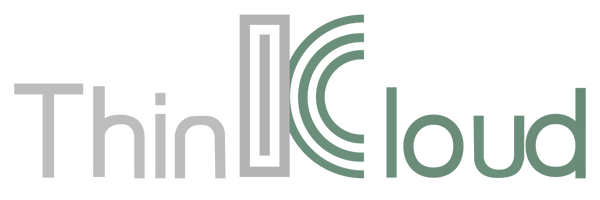IoT Empowering Smart Cities
chipthinkcloudShare
As urbanization accelerates and population density increases, traditional city management models are facing immense pressure in areas such as transportation, energy, environment, and healthcare. To address these challenges, cities worldwide are adopting the Internet of Things (IoT) to build "smart cities," enabling efficient resource management and intelligent service improvements. A smart city leverages information technology to make infrastructure, management systems, and public services more intelligent, networked, and automated. As the core technology of smart cities, IoT is transforming our lifestyles and reshaping urban operations.
01. Internet of Things (IoT)
The Internet of Things (IoT) refers to the interconnection of physical objects through various sensors and smart devices, allowing them to collect, transmit, and share data to provide smarter and more convenient services for people. In a smart city, IoT connects devices and systems to achieve digitalization and intelligence in urban management, making energy, transportation, security, healthcare, and environmental management more efficient and precise.
IoT in smart cities goes beyond simple device connectivity. By integrating big data, cloud computing, and artificial intelligence (AI), IoT enables real-time analysis and processing of vast amounts of urban data. This supports decision-makers in optimizing urban management and enhances residents' smart living experiences.
02. Applications
Smart Transportation
Smart city transportation systems leverage IoT for comprehensive digital management. Sensors and cameras monitor traffic flow in real time, providing dynamic data that allows traffic management systems to adjust traffic signals automatically, optimize vehicle routes, and reduce congestion.
Additionally, smart parking systems significantly enhance daily convenience. IoT devices can detect available parking spaces in real time, enabling drivers to locate the nearest spot via mobile apps or navigation systems, thus saving time and fuel.
Autonomous driving technology also relies on high-speed IoT data transmission. With the support of 5G and other network technologies, vehicles can communicate with each other, traffic infrastructure, and cloud servers in real time, ensuring driving safety and improving transportation efficiency.
Smart Energy
Energy is the lifeblood of urban operations, and IoT plays a crucial role in smart energy management. Using smart meters, sensors, and energy monitoring devices, utility companies can track energy consumption in real time, helping households and businesses optimize energy use.
Smart grids utilize IoT to optimize power generation, transmission, and distribution, reducing energy losses and enabling seamless integration of renewable energy sources. In smart homes, IoT controls lighting, air conditioning, and heating systems, adjusting settings automatically based on environmental conditions and user habits to save energy while enhancing comfort.
Smart Security
Urban security is a top priority in smart city development, and IoT offers intelligent solutions for urban safety. Smart surveillance systems, equipped with sensors and cameras powered by AI-based image recognition, can automatically detect suspicious behavior, fires, and other emergencies, triggering alerts and appropriate responses.
Furthermore, smart cities implement vehicle recognition and facial recognition systems to enhance public safety, improve crowd management, and enable real-time crime prevention. In residential security, IoT-based smart locks and surveillance systems enhance the safety of homes and neighborhoods.
Smart Healthcare
With IoT advancements, healthcare services are extending beyond hospitals into homes. Wearable health devices, smart blood pressure monitors, and glucose meters can continuously track users’ health data, transmitting information to cloud platforms for doctors to provide remote medical consultations.
IoT in smart healthcare enhances hospital resource management. Systems such as smart hospital beds and automated medicine dispensing robots streamline medical workflows, minimize human errors, and boost hospital operational efficiency.
Smart Environmental Management
A well-managed environment is key to a smart city. IoT sensors are widely used to monitor air quality, water quality, noise levels, and other environmental indicators. By deploying sensors across the city, authorities can access real-time environmental data and take immediate action to control pollution, improving residents' quality of life.
Smart waste management systems use IoT sensors to detect the fill levels of garbage bins, automatically scheduling waste collection to optimize efficiency and reduce operational costs.
Smart Buildings
Smart buildings play a vital role in smart cities, leveraging IoT to enhance energy efficiency, security, and maintenance. IoT-enabled smart buildings automatically adjust lighting, temperature, and other facilities based on occupancy and activity levels, reducing energy consumption while improving comfort.
IoT also enables predictive maintenance by continuously monitoring building equipment for potential failures, preventing large-scale breakdowns and reducing maintenance costs.
03. Shaping the Future
The rapid advancement of IoT is driving smart cities from vision to reality. By connecting urban infrastructure and devices to the internet, smart cities can achieve more intelligent and efficient management models. This not only enhances city operations but also creates a safer, more convenient, and sustainable living environment for residents.
With the widespread adoption of 5G, big data, and AI, IoT solutions for smart cities will continue to evolve. From transportation and energy to environmental protection and public safety, IoT is revolutionizing urban management, pushing smart cities toward a brighter future.
The smart city of the future will be an interconnected ecosystem where people, objects, and data seamlessly integrate. IoT will play a crucial role in this transformation, providing strong technological support for urbanization and improving the quality of life for people worldwide.
As IoT technology rapidly empowers global smart city development, it creates countless opportunities and possibilities. With continuous technological advancements, smart cities will become more efficient, intelligent, and user-centric. We are at the dawn of a new era in urban development, where IoT will be a key driver, leading us toward a more sustainable and intelligent future.
